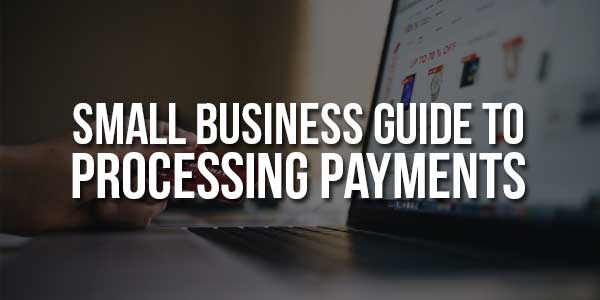
One of the most significant expenses for a small business is accepting credit cards. Whether you are just starting or have been in business for years, you likely have seen your profits decrease each time an insurance or utility bill comes due. It’s not uncommon to see accounts receivable swell by 50-100% when bills come due because many people use their credit cards to pay bills.
Credit cards are a fantastic convenience for customers, but they can be a significant drain on your bottom line if not managed properly. In addition, these days, more and more people are using debit cards which also have fees associated with them that can quickly add up for small business owners. So it’s worth taking the time to understand how these payment methods work and how to accept the payments in a way that minimizes your costs.
Table of Contents
Accepting Credit Cards:
If you have a Merchant Account through a bank or other financial institution, you will pay a fee every time your customer uses a credit card. Depending on your merchant account provider, these fees typically run between 1-2% of the purchase cost but can be as high as 3-5%. Some credit cards also charge a fee to the merchant, but most significant cards do not.
The fees are for using or authorizing the use of the card; they don’t include any transaction fees charged by Visa or Mastercard (whichever network is used). For example, a customer purchases an item for $10.00 using a Mastercard credit card through your Merchant account. You pay the bank a 1% fee on the cost of that item which is $0.10. Your interchange fees would be around another $0.05 to 0.08 cents—again, depending on which network was used (Mastercard, Visa, or Discover).
Debit Cards:
Debit cards are a little more difficult to accept than credit cards because they typically require the use of a PIN. You can add a debit card machine to your phone line and process transactions over the phone, but it will cost you an extra $10-$20 per transaction plus your interchange fees. Swipe machines are typically tied to a particular phone line or IP address, so you will have to set up dedicated devices for the processing.
You can also accept debit cards online by setting up a “Virtual Terminal” with your telephone provider, which allows you to authorize the use of the card over the phone and pay only your interchange fees. You still have to process all customer information over the phone, eliminating a massive headache for online store owners. You can set up a Virtual Terminal on your computer and use a PIN pad to enter all of your transactions while you are logged in.
Credit cards have many benefits for both the purchaser and the seller, but they also come with some hidden costs that you may not be aware of. Understanding the costs associated with accepting credit cards will help you make sound business decisions when accepting these forms of payment. Knowing how they work behind the scenes can also help reduce your costs by taking advantage of lower interchange rates offered by some providers if you qualify.

Benefits And Costs Of Accepting Credit Cards:
- Customers do not need to carry cash and can make larger purchases than they would be able to otherwise. This is especially beneficial to your small business because you get more sales, and the customer receives a convenient way to pay. You don’t have to worry about your customers running off with unpaid merchandise or trying to “figure out” an arbitrary tip since they are customary to pay the advertised price.
- Credit cards are more secure than cash so that you will lose less money through damage or theft of your products.
Costs Associated With Accepting Credit Cards And How To Minimize Them:
- Credit card companies charge an interchange fee which can cost you up to 3% of the purchase price for every transaction. This will eat into your profits significantly, so it’s essential to make sure that you are getting the best rate possible.
- You also need to pay your credit card processing company a monthly or per-transaction fee to use their services (and the card machines).
- Credit card fees can fluctuate depending on whether your customers are using a debit or credit card, which payment method they use, the merchant account provider that you choose, and many other factors. If you qualify for lower rates or even no fees, it’s essential to ensure that you are getting the best rate possible.
The next time you’re considering a payment processing service, don’t worry about the fees. Just look for one that caters to your needs and provides you with all the features that will help your business grow.

 About the Author:
About the Author:












Credit card companies charge an interchange fee which can cost you up to 3% of the purchase price for every transaction. This will eat into your profits significantly, so it’s essential to make sure that you are getting the best rate possible.
Welcome here and thanks for reading our article and sharing your view. This will be very helpful to us to let us motivate to provide you with more awesome and valuable content from a different mind. Thanks again.